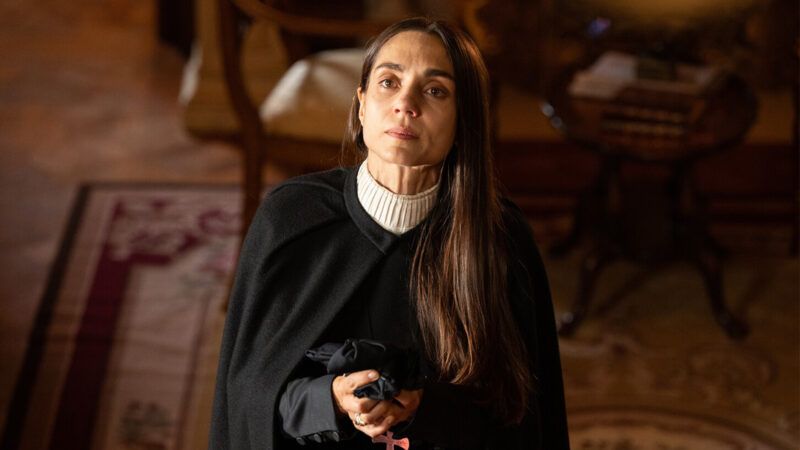Review: How a Catholic Sister Resisted an Oppressive New York City Government
A new film depicts Mother Cabrini, the patron saint of immigrants.

Cabrini is, on an obvious level, a movie about the anti-Italian animus facing swarthy newcomers to America in the late 19th century. It tells the story of Mother Frances Xavier Cabrini, a Catholic religious sister who arrives in 1889 to serve the desperately poor Italian-American community in Five Points, New York. She encounters her fair share of bigotry, but the obstacles that repeatedly threaten to derail her efforts come more often from City Hall than from everyday New Yorkers.
Starved for resources, Cabrini convinces a New York Times reporter to write about the slum—and an avalanche of donations comes pouring in. But after she uses that money to open an orphanage in an upscale area, a code enforcement officer peremptorily shuts it down. Neighbors are also happy to attend the Italian-American festival she organizes as a fundraiser for her work until the villainous mayor sends in baton-wielding riot police to break it up and confiscate the proceeds.
When Cabrini scrapes together enough to start building a hospital for the immigrant community, goons (who the viewer is invited to assume are on the city payroll) set the construction site ablaze. The idea that the government is behind most positive social change, with citizens brought along chiefly through force, is vividly belied by this film.
Mother Cabrini—today known to Catholics as the patron saint of immigrants—exemplified the entrepreneurialism of her adopted land. "We are bold or we die," she says near the end of the movie. "This is how I learned to live in America."


Show Comments (8)